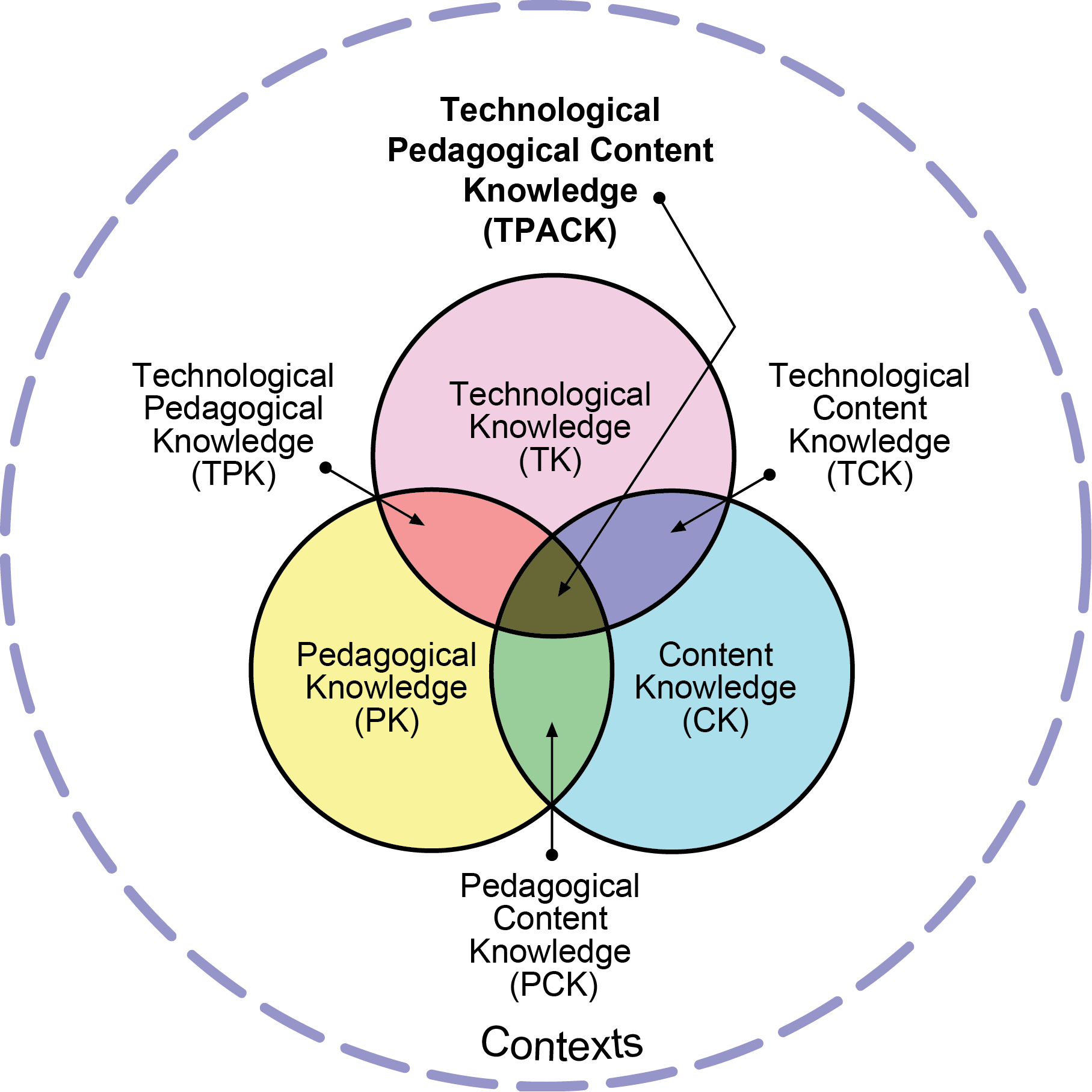A Journey of Discovery
Posted on: 25 July 2018 by Simon Thomson in General
As I write this blog post I have just boarded a boat, setting out on a voyage of discovery to discover new worlds! Ok that’s a slight exaggeration, I’m on a 24 hour ferry to Spain for a family holiday, but nevertheless this is still a journey that we have spent months organising, arranging transport, getting together the paperwork and planning our route etc.
The Centre for Innovation in Education (CIE) has been on its own journey and I am fortunate to have joined it at this exciting stage, as it emerges with a new identity and with an initial focus on supporting staff across the University in the implementation of Curriculum 2021.
A number of you will already have experienced working with some of the CIE team over the years and the newly formed service is dedicated to providing a range of services to support curriculum development. Internally to CIE we will use the TPACK framework (below) as a reference point for an integrated model of curriculum development. This framework is built around three domains which are integral to developing an effective curriculum.
The first of these is Content Knowledge (CK), we might refer to this also as “subject expertise”, and this is, of course, is what academic staff bring to the curriculum design process in abundance. Their expertise as researchers and practitioners in their disciplines is a core feature of any curriculum design process is often influenced by a number of external factors such as nationally agreed subject benchmarks, employer engagement and also professional bodies (to name a few).
The second domain is Pedagogical Knowledge (PK), this is what we might refer to as the “theory and practice of teaching” – understanding how students learn and how we might teach. It is, if you like, the mechanism by which the subject expertise of our academic staff get’s translated into the learning experience of the students. A lack of pedagogical knowledge at the programme design phase can sometimes mean that the subject does not connect with the learners as effectively as it might.
The third domain is Technological Knowledge (TK), which is the use of digital tools and services to enable, enrich and enhance the learning experience. “Digital” is a key component of a modern society, but what is important to note here is that it is “as much about deciding when not to use digital tools as it is when to use them”. Critical digital pedagogy is an emerging research area in its own right and plays an important role in shaping our curriculum. Digital tools can be used to enhance our face-to-face experiences, connect students with global discipline communities and make our curriculum more accessible.
We recognise that a number of academic staff may be proficient in more than one domain and in some cases will be proficient in all three, but what is most important is that when a curriculum review or development activity is undertaken, all three of these domains are considered with equal value and equally as critically. In the Centre for Innovation in Education we can specifically bring expert knowledge to both the PK & TK domain areas (and in some cases subject expertise) in order that your programmes can become the very best learning experiences for your students.

TPACK Framework used with permission TPACK.org
So this brings me back to the theme of this post, a “journey of discovery”. What does a curriculum look like when we engage in a process of developing it as a journey of discovery? How can we as the “experts” design a journey which engages our students in a voyage of discovery, encouraging them to be inquisitive, providing opportunities to be challenged, but with the tools and maps to help them stay on track and what does this look like when we involve students in the design of that journey?
What if we also approach the process of curriculum development as a journey of discovery? An opportunity to explore new ideas and approaches, share ideas and innovate? The role of CIE is to facilitate that discovery, to encourage programme teams to be inquisitive and provide the tools and maps to navigate the complex landscape of effective curriculum development.
Of course, programme teams can undertake curriculum review and development without CIE, but we think that the experience and output is richer and the programme better for it when we work together. Part of CIE’s role can be to act as a “critical friend”, asking challenging questions, offering up alternatives to what may already be happening and drawing upon internal expertise and external examples of best practice to engage in a critical discourse.
Perhaps when we think of “innovation in education” we think of large scale programme changes, implementations of new pedagogical models and this can feel challenging and disruptive, but innovation in its broadest sense is also about exploring new ideas, methods or approaches at a more granular level.
Innovation can feel like a big task and whilst some programmes will undoubtedly take this opportunity to “flip” their classroom or “blend” the learning on a large scale, CIE also seeks to support more of these granular innovations, such as introducing interactive elements in lectures, designing active learning in seminar sessions or using online spaces for personalised learning. We are a service dedicated to supporting programme teams and individuals seeking to provide the very best experiences for their students. So I very much look forward to CIE supporting your “journeys of discovery” through the implementation of curriculum 2021 and whilst at times the journey will be challenging and we may wander off course I have no doubt that with our support we can make both the navigation of that journey easier and the experience of the final destination so much more fulfilling.
Keywords: CIE, Director, Curriculum 2021, Centre for Innovation in Education, Journey, TPACK, curriculum development, curriculum review.